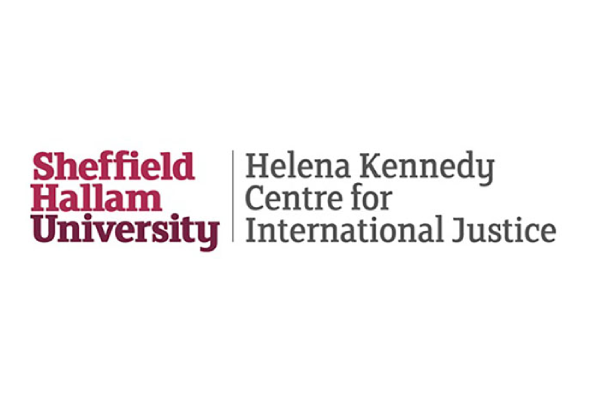All Reading
This section contains a curated list of useful articles, investigations, books and other reading materials. The list is updated on a weekly basis and suggestions for additions are welcome.
Starting Points:

Asleep at the Wheel - Car Companies’ Complicity in Forced Labour in China
In this report, Human Rights Watch outlines how global carmakers are failing to minimize the risk of Uyghur forced labor being used in their aluminum supply chains.

Tailoring Responsibility: Tracing Apparel Supply Chains from the Uyghur Region to Europe
This report provides critical insight into how forced labour-made apparel is moving from the Uyghur Region into high-street and high-end brands operating and selling within the EU.

Driving Force - Automotive Supply Chains and Forced Labour in the Uyghur Region
This report is the result of a six-month investigation analysing publicly available documents, which revealed massive and expanding links between western car brands and Uyghur abuses.

Confronting the Solar Manufacturing Industry's Human Rights Problem
This new report examines the links between the global solar PV sector and the participation of solar commodity factories in Xinjiang in state-sponsored labor initiatives that target minoritized Muslim groups in Xinjiang.

Built on Repression
This report investigates the increased manufacturing of PVC through state-sponsored labour transfers in China’s Uyghur Region and the routes by which the resulting building materials make their way into international markets, providing a road map for understanding the violations occurring in Xinjiang and how the products of those abuses pervade supply chains.

Unemployment Monitoring and Early Warning: New Trends in Xinjiang’s Coercive Labor Placement Systems
This new report charts concerning new trends in Xinjiang forced labor as the region now mandates "every able-bodied person to achieve stable employment," and keeps transferred Uyghurs in their place through an unemployment monitoring/surveillance system.

Everybody’s Business: The Xinjiang Goods Entering Global Supply Chains
This analysis of the Xinjiang economy examines specific goods produced in the region that have outsized impact on global supply chains. Organizations involved in the purchase of these agricultural and industrial products are at risk of supporting oppression.

Hugo Boss And Other Big Brands Vowed To Steer Clear Of Forced Labor In China — But These Shipping Records Raise Questions
Amid rising tensions and the approaching Beijing Olympics, the US banned Xinjiang cotton last year. But Hugo Boss still took shipments from Esquel, which gins cotton in Xinjiang.

Laundering Cotton: How Xinjiang Cotton is Obscured in International Supply Chains
This report explores how, at the same time as Xinjiang cotton has come to be associated with human rights abuses, forced-labor-linked cotton goods from the Uyghur Region wend their way into international supply chains.

In Broad Daylight: Uyghur Forced Labour and Global Solar Supply Chains
This investigation reveals how forced labour in the Uyghur region has ripple effects throughout international solar supply chains.

We Found The Factories Inside China’s Mass Internment Camps
China has built more than 100 new facilities in Xinjiang where it can not only lock people up, but also force them to work in dedicated factory buildings right on site, BuzzFeed News can reveal based on government records, interviews, and hundreds of satellite images.

Coercive Labor in Xinjiang: Labor Transfer and the Mobilization of Ethnic Minorities to Pick Cotton
Xinjiang produces 85 percent of China’s and 20 percent of the world’s cotton. Chinese cotton products, in turn, constitute an important basis for garment production in numerous other Asian countries. New evidence shows that hundreds of thousands of ethnic minority laborers in Xinjiang are being forced to pick cotton by hand through a coercive state-mandated labour transfer and “poverty alleviation” scheme, potentially affecting all global supply chains that involve Xinjiang cotton as a raw material.

Documenting Xinjiang’s Detention System
This database of nearly 400 suspected detention facilities in Xinjiang highlights ‘re-education’ camps, detention centres and prisons that have been newly built or expanded since 2017.

Addressing Forced Labor in the Xinjiang Uyghur Autonomous Region: Toward a Shared Agenda
The forced labor of ethnic and religious minorities in the Xinjiang Uyghur Autonomous Region (XUAR), as part of a broader pattern of severe human rights abuses, is a significant and growing concern that demands the attention of governments and private-sector actors across the world. Products entering the United States, Europe, and other democracies are at risk of being affected by these forced labor practices, which often occur several steps away from global brands in supply chains.
This brief explores what the XUAR produces, the sectors that are implicated, the resulting sourcing challenges, and the opportunities for collective action to be explored in further research.

Uyghurs for Sale: ‘Re-education’, forced labour and surveillance beyond Xinjiang
This report reveals how the forced transfers of Uyghurs to factories across China are linked to the supply chains of dozens of international brands.